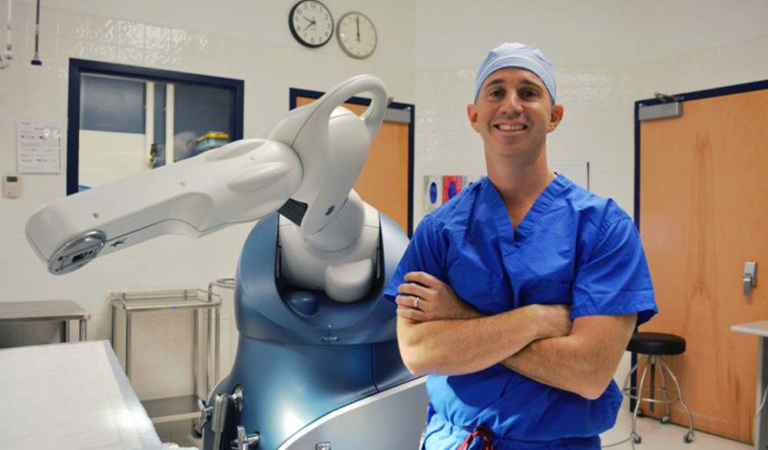
What is an Orthopaedic Surgeon?
An Orthopaedic surgeon is a specialist in treating injuries, diseases, and ailments of the musculoskeletal system. This includes, bones, joints, ligaments, tendons, etc of the entire body. Some orthopaedists are generalists and take care of a wide variety of conditions while others are more sub-specialized and focus on specific body parts or diagnoses.
Orthopaedic vs Orthopedic
There is no difference between orthopAedic and orthopedic. The traditional spelling stemming from the British had that “A”, Americanized versions often remove the A.
What about the terms Orthopedist and Orthopod?
Orthopod is a short-term slang to describe an orthopaedist or orthopaedic surgeon. Also the Orthopaedist vs orthopaedic surgeon are the same…some just prefer to say they are a surgeon, some prefer the other to differentiate that they take care of non-surgical problems in addition to surgical.
What problems do Orthopedists treat?
Orthopaedists treat a wide variety of musculoskeletal problems of any bone or joint, including the spine. These can include acute injuries such as fractures, ligament tears, meniscal tears, labral tears, or rotator cuff tears. These can also include more chronic conditions including arthritis, carpal tunnel syndrome, tendinitis, etc.
When should I see an orthopedic surgeon?
- You should consider seeing an orthopaedic surgeon for any acute injury involving the bones or joints.
- A traumatic injury that leads to swelling, loss of motion, strength, or inability to bear weight.
- Also, for chronic conditions such as arthritis that is worsening and isn’t improving with rest and over the counter medications.
What training do Orthopaedic surgeons receive?
Orthopaedic surgeons all must attend 4 years of medical school followed by completion of a 5 years orthopaedic surgery residency program. Many now choose to undergo an additional year of fellowship training focused on a specific area of interest.
Certification and Licensure
All must obtain state licensure (medical license) to practice medicine in their state. Most hospitals now require Board certification in order to obtain credentials at the facility to practice/operate there. This is done through the American Board of Orthopaedic Surgeons (ABOS). The board certification process begins with an 8 hour written exam at the end of residency (Part 1), followed by an in person oral examination presenting cases that you have completed during your first year of practice (after first year of practice, Part 2). If you pass both of these you are fully board certified (ABOS) which then requires re-certification every 10 years.
Where do orthopaedic doctors work?
Orthopaedic surgeons can work in the academic setting (universities), be employed by a hospital system or medical group, or be in private practice. They typically see patients in the office 3-4 days per week and operate at a hospital or surgery center 1-2 days a week.
On nights and weekends, Orthopaedic surgeons can also be found on the sidelines of sporting events of all levels from youth through professional. They work as part of the medical team evaluating injuries and caring for athletes on the field.
Where to find an orthopedic surgeon near you
Often times getting a referral from friends/neighbors/family members who have had good experiences. Your primary care physician can also provide good recommendations too.
Online reviews can also be helpful as well as visiting the surgeon’s website to read their bio which will often contain info of their area of interest/expertise to make sure it fits with your problem.

Dr. Mark Sando is an internationally recognized orthopaedic surgeon specializing in sports medicine, arthroscopy and injuries of the shoulder, knee and hip. He earned his medical degree from Case Western Reserve University School of Medicine and completed residency at the University of Maryland Medical Center and R Adams Cowley Shock Trauma Center. After residency, Dr. Sando went on to complete subspecialized training in Sports Medicine as a fellow at the prestigious Kerlan-Jobe Orthopaedic Clinic in Los Angeles, CA under the direction of Dr. Neal ElAttrache. He has worked with numerous college athletic programs and professional teams including the world champion Los Angeles Kings, Los Angeles Lakers, Los Angeles Dodgers, and Los Angeles Sparks. Dr. Sando has been with the Orthopaedic Medical Group of Tampa Bay since 2015. Full Bio





